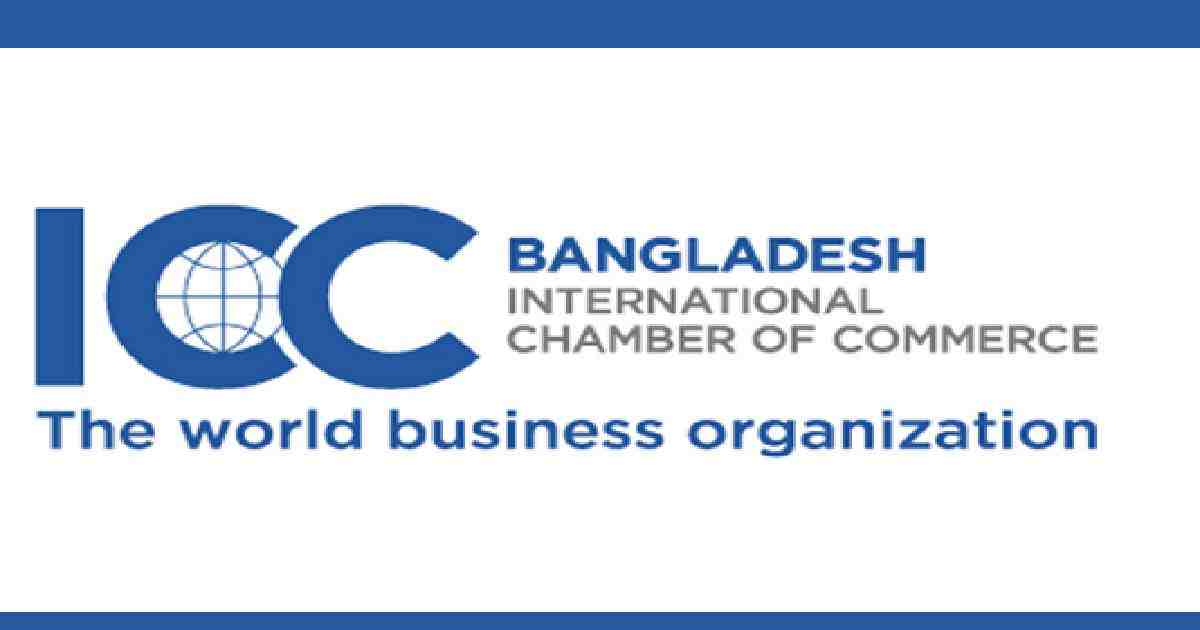
DHAKA, June 10, 2023 (BSS) - The International Chamber of Commerce, Bangladesh (ICCB) has suggested the government to address some key issues for overcoming the challenges like inflationary pressure, in energy sector, in infrastructure, in project implementation and the Non Performing Loans (NPLs).
The ICCB executive board came up with such suggestions at its 28th annual council held in the capital today.
The board suggested addressing these key issues for overcoming the challenges. These are: Inflationary Pressure: in order to contain the inflationary pressure, there should be appropriate monetary and fiscal policies, said a press release.
In the energy sector, increasing dependence on imported fossil fuels, LNG & coal for power generation has intensified risks, negatively affecting foreign currency reserves and swelling subsidy burdens.
So, Bangladesh should move faster with its exploration activities both on-shore and off-shore to replace expensive LNG with its own natural gas reserve as well as establish Nuclear/ Renewable energies to avoid adverse effect of climate change.
It said Balance-of-Payments deficit; rising commodity prices and a surge in imports resulted in a Balance of Payments (BoP) deficit.
The ICCB noted that there is an urgent need for Bangladesh to diversify its export market and products, and sign FTAs with major Asian countries.
In infrastructure, it said as Bangladesh strives forward, infrastructure will play a crucial role in stimulating and crowding-in private sector investment.
By some estimates, Bangladesh will require to make investments of well over $100 billion in the course of the next decade to build ports and roads, set up rail lines for management of goods, establish power-generation & distribution capabilities, provide utilities and services to meet the ever-increasing demands of the economy.
In project implementation, BIDS said a one month extension raises project cost by 0.95 percent, therefore, it is an urgent need to ensure timely project implementation to save cost as well as time. In the area of Non Performing Loans (NPLs), the total volume of non-performing loans (NPLs) has increased by more than three times in the last 10 years.
The banking sector needs more stringent lending policies and their enforcement, in order to tackle the problem of NPLs.
In the agriculture sector, the ICCB said the farming sector has individually employed more than 40.6 percent people, either directly or indirectly.
"Climate change is a big challenge, which we are facing and will have to face with the use of new agricultural technologies and adaptability. We must closely follow global adaptation technologies and concentrate more on new examples of climate adaptability which is best suited for us."
In IT industry, the international chamber said technology is currently used in every facet of life to benefit Bangladesh's digital economy.
"Our nation will become Smart Bangladesh by 2041. Although the human resources in the IT sector are increasing in the country, they need to be developed to be suitable for the industry and Human Resource Development."
It said several studies conducted by the BIDS have revealed a substantial gap in the skill sets of workers in labour-incentive industries such as readymade garments (RMG), light engineering and electronics, leather and footwear, and agro-food processing. Enterprises have emphasized the need for demand-based educational system and increasing appropriate training activities to minimize these gaps.
Speaking on the occasion, ICCB president Mahbubur Rahman said Bangladesh is now on track for graduating from the least developed country status in 2026. In order to achieve this, the country needs to maintain a GDP growth rate of over 8 percent and increase its per capita income to around $13,000 from $2,824 now in less than two decades to reach the milestones.
"Graduation to middle-income country will require Bangladesh to fulfill a number of international compliances. Therefore, good governance must also be addressed in both the public and the private sector, which is still far below the global indexes," said ICCB President Mahbubur while presenting the executive board report at its 28th annual council held in the capital today.
Rahman mentioned while chasing big dreams, there are also mega challenges. "Bangladesh made a rapid recovery from the COVID-19 pandemic supported by prudent macroeconomic policies. But, the economy now faces considerable challenges with global economic uncertainty," he noted.
The Council approved the Auditor's Report of 2022 and appointed Auditor for the year 2023.
The council meeting was attended, among others, by ICCB vice president AK Azad; executive board members: Kutubuddin Ahmed, Anwar-ul-Alam Chowdhury (Parvez); Aftab Ul Islam,; Md. Fazlul Hoque & Tapan Chowdhury; Md. Sameer Sattar, president, DCCI; Naser Ezaz Bijoy, president, FICCI; Muhammad A. (Rumee) Ali, chairman, ICCB Banking Commission & Vice Chairman, BIAC; ICCB secretary general Ataur Rahman; Abul Kasem Khan, managing director, A. K. Khan Telecom Ltd.; Rizwan Rahman, managing director, ETBL Securities & Exchange Limited.